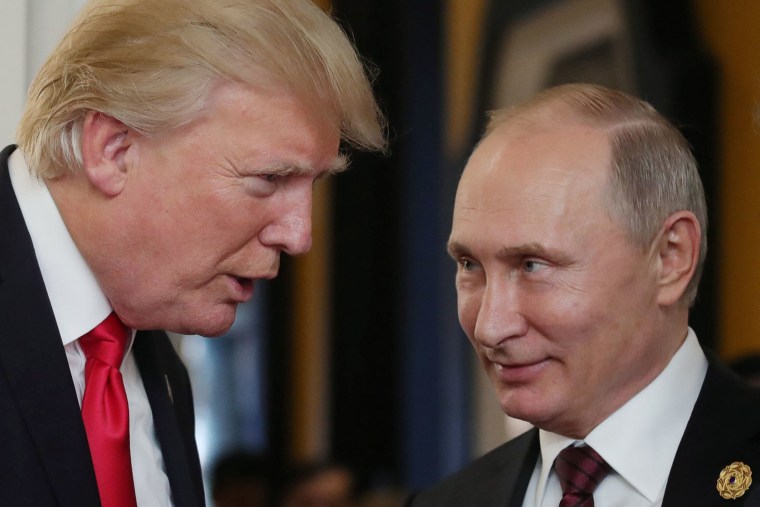One of the greatest successes Russia had in 2016 was creating doubt and damaging faith in American institutions — notably, our election system. However, Americans still seem to be confused about the actual threat Russia poses to the United States. Some on the conservative side have essentially dismissed the allegations out of hand. On the other side of the aisle, some liberals have edged increasingly close to hysteria, arguing that the Kremlin tampered with election totals.
With midterm elections fast approaching, it's critical that we understand the Russian threat objectively. Frustratingly, President Donald Trump has continued to muddle the issue. In a July tweet, the president claimed that the Russian meddling story was all a “big hoax” — in spite of overwhelming evidence to the contrary. In part because of Trump’s refusal to admit Russian interference — and Democrats’ desire to attack him on it, a confusing and partisan narrative about the sanctity of votes has emerged. It is a narrative mostly devoid of evidence, making Trump’s underemphasis of Russian interference only part of the problem.
Descending into conspiratorial and partisan thinking will only make the current situation worse. The government has not been taken over by Russia. People who caution against jumping to conclusions are not Russian agents, either. Such hyperbolic accusations actually help Russia, because they create confusion and institutional distrust — without Russia ever having to get its hands dirty.
As an intelligence operative and double-agent who worked undercover for three years against the Russian intelligence agency known as the GRU, I learned that Russian intelligence officers, while committed to causing the U.S. harm, prefer to avoid direct confrontation. They were logical and rational actors who were willing to take on risk — just not too much. Understanding how they think and what they fear is important as we continue to unravel what exactly happened in the 2016 election, and how much of a threat we face in the 2018 midterms.
For example, it makes sense that Russia would try to use WikiLeaks, Natalia Veselnitskaya at the Trump Tower and alleged foreign agent Maria Butina to further its agenda; such actors give Russia plausible deniability. My Russian handlers often worried about FBI surveillance and about being caught. To mitigate this danger, they used third parties to shield themselves should their operations be compromised.
Since the collapse of the Soviet Union, Russia’s economy has been hampered by sanctions. For this reason, and despite its forays into Ukraine and Syria, escalation with the U.S. or NATO — let alone direct military confrontation ± would not be sustainable for the Kremlin. However, its ambition to return to Soviet-era domination means Russia does continue to look at the United States as an adversary. Interfering in elections or fanning the flames of societal chaos helps Russia harm us without risking war.
But interference is not the same thing as vote hacking. On October 31, 2016, President Barack Obama warned Putin that “actions in cyberspace” would be subject to “[i]nternational law, including the law for armed conflict?” Given this direct warning, it seems unlikely that Putin would sign off on anything that risked direct escalation on Election Day.
What does this mean? Practically speaking, it means that the American intelligence community and the general public must remain vigilant about foreign interference. But we also need to listen to what the experts are saying. As Deputy Attorney General Rod Rosenstein clarified, for example, even though 12 Russian intelligence officers were recently indicted for crimes associated with election hacking “[t]here is no allegation that the conspiracy altered the vote count or changed any election result.” And the Senate Intelligence Committee’s own report on broader Russian meddling made clear that it had "not seen any evidence that vote tallies were manipulated or that voter registration information was deleted or modified."
At its core, these questions are designed to question the legitimacy of Donald Trump’s 2016 win. Thus, Trump’s refusal to acknowledge Russia’s involvement in the 2016 election is likely because of a fear of delegitimizing his presidency. With the midterms fast approaching, there are many reasons to question Trump’s presidency, but Russia changing votes on his behalf shouldn’t be one of them.
Naveed Jamali is an MSNBC intelligence analyst, senior fellow at the Foreign Policy Research Institute and a former FBI double agent who spent three years successfully working undercover. His book, “How to Catch a Russian Spy," was published in 2015.

